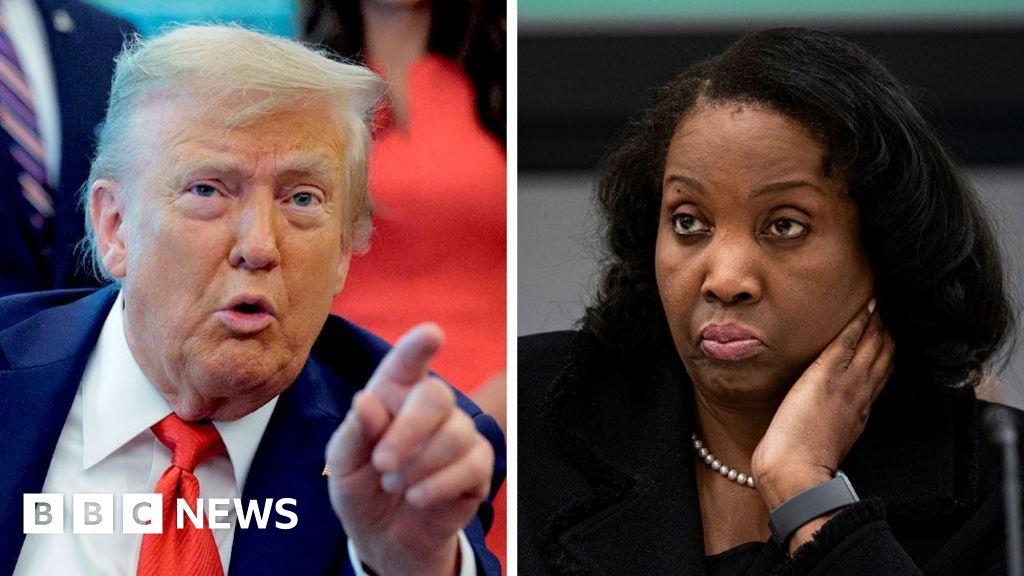The corner shop Ramji Dharod has manned for over 60 years is now facing closure amidst the dominance of quick commerce. Nestled in a busy shopping lane in Mumbai, this establishment has served the community for 75 years, but now faces an uncertain future as fewer customers patronize the store. "Just a few years back, I was overwhelmed with customers; now, I'm often alone with unsold stock," reflects Dharod, who plans to retire.
Neighborhood businesses across India are feeling the crunch as rapid delivery services from companies like Zomato and Zepto reshape shopping habits. According to reports from a consumer product lobby, approximately 200,000 neighborhood stores closed as a direct consequence of these online platforms. In Chennai alone, data from local authorities show a staggering closing rate of about 20% for small grocers over the last five years.
Retailer Sunil Kenia, whose shop is adjacent to Dharod's, remarks that he's only surviving because of family ownership. He reports his pre-pandemic business levels have plummeted by half, mainly relying on wholesale transactions. Meanwhile, graphic designer Monisha Sathe exemplifies the shift in consumer behavior, sharing how the inconvenience of grocery shopping has pushed her towards the immediacy of quick commerce, despite some nostalgia for direct interactions with local vendors.
A PwC report highlights that over 42% of urban residents in major Indian cities prefer rapid delivery shopping, leading to a worrying decline in sales, with a 52% drop noted for essential goods. Trade associations have voiced alarm over the disruptive influence of quick commerce companies, likening their growth to predatory pricing practices that disadvantage traditional retailers.
Despite stark criticism, quick commerce has found traction in densely populated urban areas, fueled by the convenience offered to busy city dwellers. Ankur Bisen from Technopak retail advisory states the immediate threat to retail may be confined to major cities for now, as expanding into less populated regions poses challenges for profitability.
Yet, projections suggest a booming outlook for quick commerce, with Bain and Company estimating annual growth exceeding 40% through 2030. Urged by concerns over intensified competition, retail organizations are lobbying for government intervention in light of venture capital-backed firms allegedly engaging in skewed pricing strategies.
While quick commerce firms declined to address these allegations directly, a source insisted that they merely provide a solution for consumers disillusioned with traditional shopping experiences. They emphasized democratizing shelf space for small brands that often lack representation in physical stores.
Ultimately, analysts believe that diverse retail models—including traditional shops, organized retail, and quick commerce—will exist alongside each other. The anticipated evolution of the market discourages a "winner-takes-all" mindset, which marginalizes the smaller players. As traditional retailers face existential challenges, the key may lie in integrating technology and enhancing customer engagement to thrive in a landscape reshaped by rapid online delivery.
Neighborhood businesses across India are feeling the crunch as rapid delivery services from companies like Zomato and Zepto reshape shopping habits. According to reports from a consumer product lobby, approximately 200,000 neighborhood stores closed as a direct consequence of these online platforms. In Chennai alone, data from local authorities show a staggering closing rate of about 20% for small grocers over the last five years.
Retailer Sunil Kenia, whose shop is adjacent to Dharod's, remarks that he's only surviving because of family ownership. He reports his pre-pandemic business levels have plummeted by half, mainly relying on wholesale transactions. Meanwhile, graphic designer Monisha Sathe exemplifies the shift in consumer behavior, sharing how the inconvenience of grocery shopping has pushed her towards the immediacy of quick commerce, despite some nostalgia for direct interactions with local vendors.
A PwC report highlights that over 42% of urban residents in major Indian cities prefer rapid delivery shopping, leading to a worrying decline in sales, with a 52% drop noted for essential goods. Trade associations have voiced alarm over the disruptive influence of quick commerce companies, likening their growth to predatory pricing practices that disadvantage traditional retailers.
Despite stark criticism, quick commerce has found traction in densely populated urban areas, fueled by the convenience offered to busy city dwellers. Ankur Bisen from Technopak retail advisory states the immediate threat to retail may be confined to major cities for now, as expanding into less populated regions poses challenges for profitability.
Yet, projections suggest a booming outlook for quick commerce, with Bain and Company estimating annual growth exceeding 40% through 2030. Urged by concerns over intensified competition, retail organizations are lobbying for government intervention in light of venture capital-backed firms allegedly engaging in skewed pricing strategies.
While quick commerce firms declined to address these allegations directly, a source insisted that they merely provide a solution for consumers disillusioned with traditional shopping experiences. They emphasized democratizing shelf space for small brands that often lack representation in physical stores.
Ultimately, analysts believe that diverse retail models—including traditional shops, organized retail, and quick commerce—will exist alongside each other. The anticipated evolution of the market discourages a "winner-takes-all" mindset, which marginalizes the smaller players. As traditional retailers face existential challenges, the key may lie in integrating technology and enhancing customer engagement to thrive in a landscape reshaped by rapid online delivery.




















